Trust is the basis
For regulated data exchange between machine manufacturer and machine operator, one thing is fundamental: trust. How to earn and maintain this. An expert interview
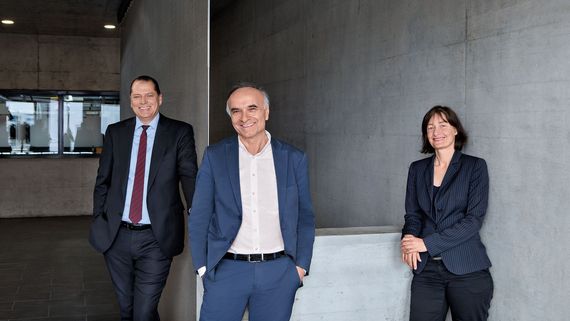
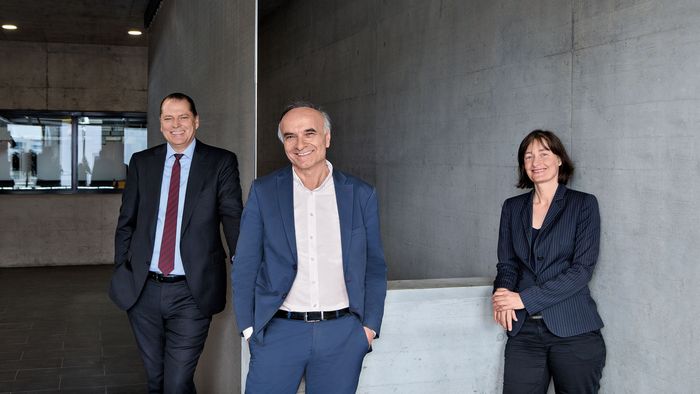
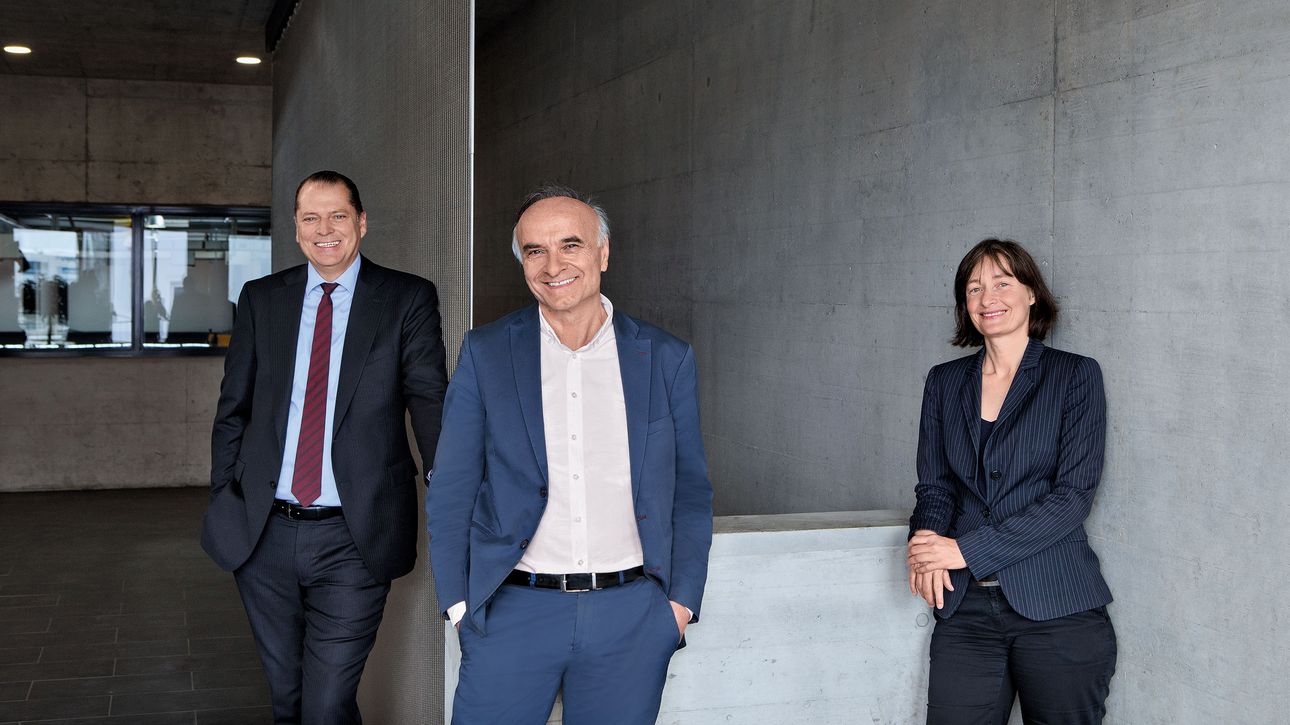
The exchange of data between providers and customers is a matter of course today, and is often a fundamental business model. In the consumer goods sector, there is a lot of attention on data protection. What about data protection and trust in the B2B area and capital equipment?
Stephan Nell: I think you have to make a distinction. On the one hand, there is personal data. The European General Data Protection Regulation (GDPR) applies to personal data. On the other hand, there is process data. As a machine manufacturer, we develop processes with the customer, and we have developed a concept for this with a Data Protection Officer. This means that we definitely do not remove any personal data from the systems. And with machine data, the firm principle applies that we can only access the machine if the customer allows access. So let‘s suppose there is a service request that the customer submits digitally. Then they actively establish the connection to us, which is automatically severed again after the remote service has been completed. By the way, such remote operations are nothing new. We have been able to do this for decades. In the past, the modem used to be slower and more cumbersome.
Mrs Diethelm, your field of research is digital ethics. You complain about dark patterns, i.e. unethical behaviors. Has mechanical engineering already become noticeable for you in this regard?
Cornelia Diethelm: No, the mechanical engineering has not yet become noticeable. That certainly has to do with the fact that the focus is on the consumer. And dark patterns are more common, because more people have direct experiences.
Stephan Nell: The situation in our business is different. We have long-standing relationships with our customers. We sell capital equipment, not consumer goods, and our business is based on trusting partnerships. We would destroy long-term customer relationships if we did not adhere to the mutual agreements - whether analog or digital. In addition, we not only sell machines, but also process solutions, complex, individually tailored solutions. You can‘t do this over the internet.
Mr Xevelonakis, you are the Head of a Data Science University Center. What is your opinion: What tensions are experienced between companies and customers when it comes to handling data?
Evangelos Xevelonakis: We have a clear area of tension here. On the one hand, we have companies like the UNITED GRINDING Group that try to develop new products based on data, to identify weak points and, in general, to make processes more efficient. On the other hand, we have customers who are suspicious: What actually happens to our data? Let’s take a look at the topic of process management, for example. So, why do we have problems with a machine? Because employees can't operate them properly? Or do we have a machine fault? When it comes to employees, it can be tricky. We have carried out various studies, not in the B2B, but in the B2C area, and they have shown the following: If there is transparency, if the employee knows what is happening with the data, the probability is very high that they will accept it.
Stephan Nell: Here we must make a distinction again. What do we do as a machine supplier, what does the customer do? We are responsible for the machine and its performance. The customer is responsible for their own employees. You also have to see that most of the machines are CNC-controlled, which means that the processes are more or less fully automated. Of course, you could do a lot. If you go to a manufacturing trade fair, you will see that everything can be queried in purely theoretical terms and any process data can be evaluated. However, the question arises: What is essential and relevant, what are the benefits for the customer? For example, we offer the Production Monitor, which makes the productivity of a machine or the entire production process transparent and therefore also shows optimization potential. But evaluating this and creating the rules for it is the job of the company, not ours.
Evangelos Xevelonakis: I could imagine that predictive maintenance plays an important role for you.
Stephan Nell: Absolutely. However, from a technical point of view, we have machine availabilities that are very high. There is not much that can be optimized there. However, I can support the customer in planning the operation and maintenance of their machine better. What is also important here: it must add value for the customer. Predictive maintenance helps customers to optimize production efficiency. To achieve this, we rely on data and our vast experience. So we try, for example, to schedule the replacement of a spindle as late as possible. The aim is to reduce production costs, increase production reliability, and minimize downtimes. These are the key parameters for our customers.
Evangelos Xevelonakis: Do you use forecasting models for this?
Stephan Nell: We are in the process of developing them. For individual sub-assemblies for example, you can see from the tolerances how wear is developing. Or you can see the condition of bearings with temperature sensors.
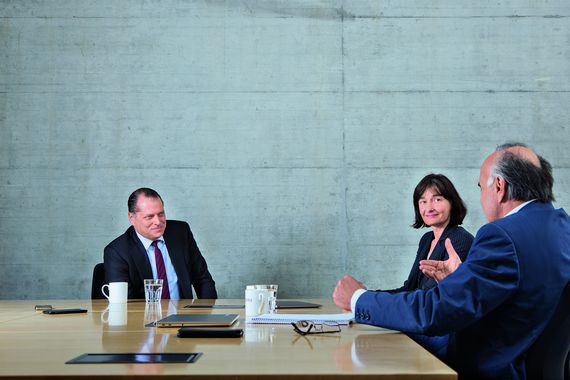
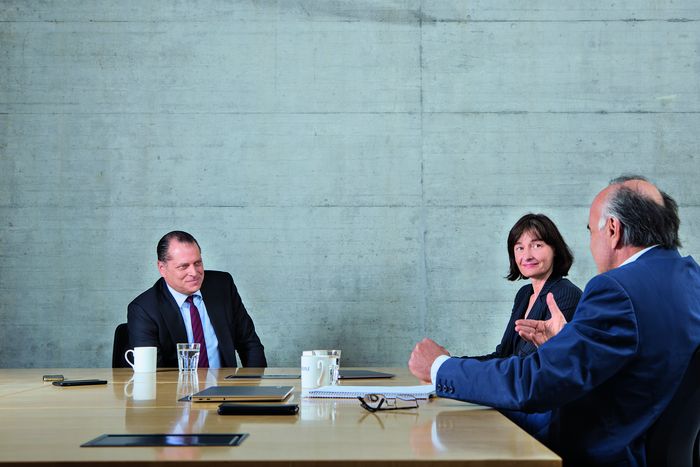
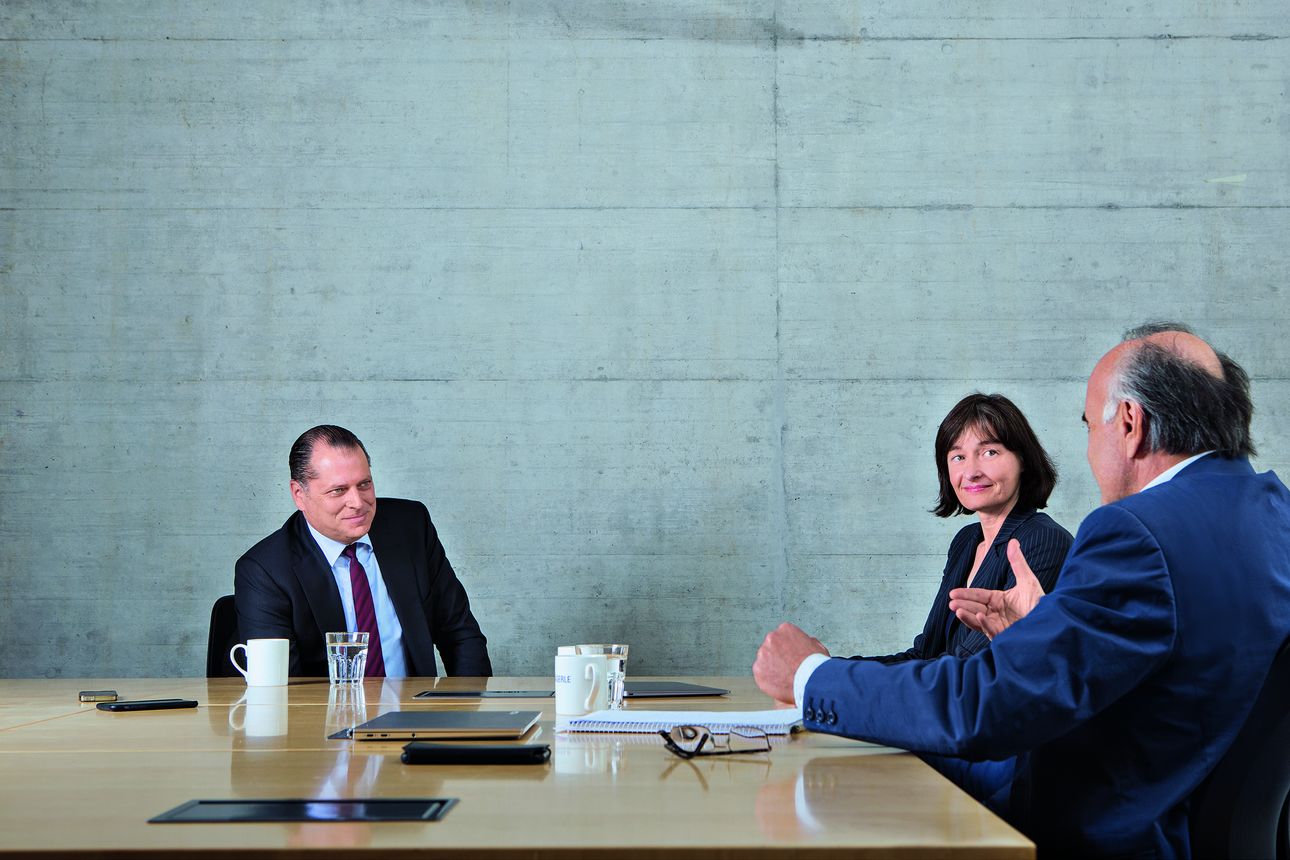
Mrs Diethelm, to what extent can responsibilities be divided, or how do manufacturers and customers need to work together?
Cornelia Diethelm: I think it's a collective effort. Ultimately, this is an interplay along the entire value chain. It is of no use to me if I am responsible, but I've got a manufacturer who is not. With this in mind, I am convinced that responsible manufacturers are a benefit for responsible companies. It really is a partnership, a cooperation.
Stephan Nell: It simply needs transparency. You have to be open and say how to behave. If you are a global company, you will encounter different rules and cultures. There is no such thing as a solution, but we have to work this out individually with the customer in each country. Perhaps even more than in other industries, a basis of trust is needed in the capital equipment business. This business is based on trust, whether you are working with data or not. It is crucial for the customer that their production process remains stable in the long run. That‘s why they must be able to rely on us to be able to support them in the long term with spare parts, software and assistance. Consider this: The installed base of our machines today comprises around 50,000 systems worldwide. Many of them are older than 25 years.
Evangelos Xevelonakis: In this context, perhaps a small psychological digression. There is the phenomenon of the intentionbehavior gap. This refers to the discrepancy between what I say and how I act. So if for example there is someone who does not reveal their data for fear of abuse – but who is privately active on social media. This means that we see a gap between intention and action. And it would certainly be important for this person to know what advantages they would benefit from if they were to share their data. In other words, in addition to transparency, it is important to quantify the benefits. This should be done where possible in monetary units.
Stephan Nell: We ask ourselves the same question. We invest a lot in developing such solutions. To achieve this, what we offer in the digital sector must bring about measurable added value for the customer.
How important are internal ethical rules for trusting customer relationships?
Cornelia Diethelm: Very important, that‘s for sure. You do it to give your customers security and trust, and perhaps to make yourself stand out from the competition. That is why internal information awareness is definitely of the utmost importance. The world is becoming more and more data-driven, and so the culture simply needs to evolve. Nevertheless, I think we shouldn‘t panic when discussing privacy and ethics. In addition to all the risks, we should always see the benefits of working with data. Because if we do not judge based on data, it is definitely a blind flight. But I think culturally, it is sometimes easier to see the risks rather than the opportunities and possibilities. That may be because of our European culture, wouldn‘t you say?
Stephan Nell: Perhaps it's also a generational question. When I look at my children, they deal with topics like this very differently.
Cornelia Diethelm: Ultimately, we are in a transitional phase in which the actors have different values and different levels of knowledge. I have a feeling that companies are aware of this and sometimes even act more responsibly than individuals who may also get lazy. But the focus remains on companies, and they have a lot to lose. And trust is an asset you definitely don‘t want to lose.
Does trust change if you only communicate digitally with customers, as is now the case in the pandemic?
Cornelia Diethelm: In principle, trust is something that operates between people. Trust is an emotional value. Digital tools are human tools. But people do business, and trust takes place between people.
Stephan Nell: I agree with you in that, trust is a human value. Existing relationships can certainly be continued digitally in a trustworthy manner. However, in the case of new, emerging relationships, I am skeptical about whether they can be built on with the same degree of trust on digital channels.
Cornelia Diethelm: As far as the quality of communication is concerned, I completely agree with you. But maybe this will change over time. And trust also increases over time, it is not achieved instantly, but there are several channels over a longer period of time.
Mrs Diethelm, to what extent has the coronavirus pandemic changed the expectations that stakeholders and customers have of large companies?
Cornelia Diethelm: I think it's more the expectation that digitalization will advance faster now. We have all experienced that much more is possible than we originally thought. Dealing with the pandemic was in some ways a social experiment.
Mr Xevelonakis, you work with the term process mining. What does that mean? And can you reconcile process optimization and customer orientation?
Evangelos Xevelonakis: Strictly speaking, data is the product of processes. It develops over time, over the course of processes. And I can analyze processes to see whether they contribute to customer satisfaction. This is process mining. I can develop a model that uses machine learning and algorithms to predict when a customer will be satisfied. Then there is the term customer effort. This indicates how much effort a customer has to make for their question or problem to be solved satisfactory. Process mining should, however, be implemented as a sociotechnical system. Technical and social aspects should be integrated into a uniform system with regard to the interaction between people, technology and organization, so that synergy effects work in favor of increased competitiveness.
Stephan Nell: This means that we are now moving away from machines and data and towards the overall structure of the company. We have the PuLs program, precision and passion, for this comprehensive approach. It is a corporate philosophy that aims to eliminate waste from all processes. This requires transparency in all departments. For optimization, the entire process chain from sales to production to customer care must be considered. PuLs is primarily aimed at process stabilization and optimization. We want visible results for our customers, such as delivery reliability and constant machine quality. And with that we can ultimately make our customers more successful.





